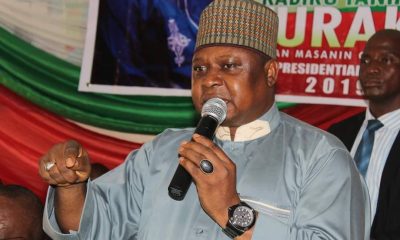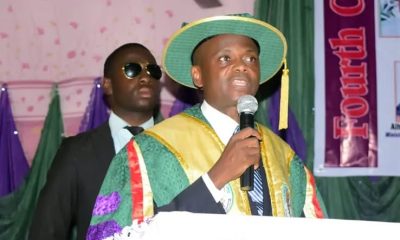Some Civil Society Organisations (CSOs) on Thursday in Abakaliki met to chat strategies to improve response to Gender-Based Violence (GBV) in Ebonyi.
The members of the CSOs, which met under the European Union and United Nations (EU-UN) Spotlight Initiative, harped on the urgent need to collaborate in order to enhance quick response to all forms of GBV in the state.
The National Daily reports that two of the CSOs, Economic and Social Empowerment Rights of Communities (ESERC) and Integrated Health Policy (IHP) were collaborating to promote response to GBV under the EU-UN Spotlight Initiative project.
Participants noted that the meeting was aimed at identifying challenges, areas of collaboration, synergy and improvement on the prompt and effective responses to GBV cases in the state.
The CSOs listed some of the challenges affecting their performance in the campaign against gender-related violence to include; documentation, litigation and mediation expenses as well as equipping of their various secretariats.
Rev. Flora Egwu, the Gender Desk Officer at the National Obstetrics Fistula Centre, (NAOFIC), Abakaliki, said that task force on GBV has been working tirelessly to respond to cases of gender-related violence in the state, despite challenges.
Egwu lamented that lack of logistics and poor funding were hampering the smooth and effective operations of the task force.
“Logistics is the major challenge preventing the task force from smoothly carrying out its operations, especially with security operatives who sometimes demand money to fuel their vehicles before embarking on the arrest of perpetrators of GBV in parts of the state,” Egwu said.
She added that the task force also needed means of transportation for mediation.
Another participant, Mrs Ugo Nnachi, the Executive Director of Daughters of Virtue and Empowerment Initiative (DOVENET), harped on the need for a toll-free helpline to be set up so that indigent survivors of GBV could easily reach out to the task force at no cost.
“A toll-free helpline will enable indigent survivors of GBV to get quick help from the task force and this will increase our response approach,” Nnachi said.
Mrs Goodness Mgbaja, another participant, said the government should do more in rehabilitating and empowering victims of GBV.
She noted that victims were mostly indigent persons in the rural communities, adding that rehabilitating them would not only improve their welfare but reduce further exposure to GBV.
Meanwhile, Mr Ikechukwu Nwaogu, ESERC Project Manager, one of the CSOs implementing the initiative’s project, commended the efforts of the task force in the state and the huge results it was making.
He described the meeting as timely and very important assuring that his organisation would help in establishing a toll-free line for the task force.
He further promised commitment to the funding of the activities of the collaborating partners to enable them to perform their duties effectively.
“Our organisation will continue to partner and support groups working to end or eradicate all forms of gender violence in Ebonyi,” Nwaogu said.
The EU-UN Spotlight Initiative seeks to eliminate violence against women and the girl-child.
Its overall vision is to have a Nigeria where women and girls, especially the most vulnerable, would live a life free from violence and harmful practices.
The Spotlight’s focal states are Adamawa, Cross River, Ebonyi, Sokoto, Lagos and the Federal Capital Territory.

 Latest2 days ago
Latest2 days ago
 Trends3 days ago
Trends3 days ago
 Crime1 week ago
Crime1 week ago
 Energy7 days ago
Energy7 days ago
 Latest1 week ago
Latest1 week ago
 Aviation1 week ago
Aviation1 week ago
 Education7 days ago
Education7 days ago
 Latest1 week ago
Latest1 week ago

